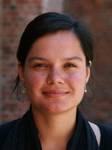This project examines why some returning refugees come to destabilize the peace process in their home country upon return, whereas others do not. The potential for violent mobilization amongst refugees was firmly placed on the agenda through the concept ‘refugee warriors’. Sarah Kenyon Lischer has estimated that militarization is significant in some 15-20% of all refugee populations. Furthermore, it is clear that most refugee warriorism aims at political power in the country of origin. Nonetheless, the potential for threats to peace due to returnee mobilization has remained unaddressed, by academics and policymakers alike. Forced migration provides fertile ground for violent collective action. This may seem obvious today, but when the term ‘refugee warriors’ was launched in the latter half of the 1980s, it was highly controversial. The term was coined by Astri Suhrke, and introduced through the collaborative work by Aristide Zolberg, Astri Suhrke and Sergio Aguayo, in particular in the book Escape from Violence: Conflict and the Refugee Crisis in the Developing World (Cambridge University Press, 1989). The term brought attention to an important, yet so far neglected, aspect of displacement. Despite the fact that a proportion of the returnees are (current or former) fighters, the two are dealt with as separate categories of people – in the academic literature as well as by policymakers and practitioners. Furthermore, the return of refugees - all assumed to be ‘civilians’ - is seen to signify a successful peace process. The possible negative impact of refugee return on the post-conflict situation is often discussed as a question of ‘absorptive capacity’. More dramatically, however, rapid return may threaten the viability of peace if returning refugees are actual fighters or are mobilized as fighters upon return. If so, the returnees themselves may represent a security threat, and hence undermine a peace process.The project aims at mapping the mechanisms by which returning refugees engage in violence in their country of origin. We look at a subset of returnees – those from refugee populations where military mobilization has been prevalent – and explore the mechanisms by which they come to engage militarily, or not, upon return. Five types of factors are dominant in explaining returnee mobilization:1. The nature of the peace;2. support from other states;3. social cohesion among returnees and with those still in exile;4. humanitarian support from external sources; and5. economic opportunities at home.Each of these has both local and transnational aspects. The nature of the peace, for example, is about the commitment of domestic groups, the stance of transnational non-state actors, and the buy-in from neighboring states.The project has been funded by a grant (2008-2011) from the Research Council of Norway, with additional funding from the Norwegian Ministry of Foreign Affairs (2012–). The project has an ambitious publication plan, and will culminate in a book that conveys the results of five case studies (Afghanistan, Cambodia, Darfur/Sudan, Liberia and Rwanda) as well as an overarching analytical framework and the generic conclusions. Findings will also be conveyed in a series of four policy briefs, aimed at a broader audience of policy-makers and practitioners in refugee management, peacemaking and peacebuilding.
Going Home to Fight? Explaining Refugee Return and Violence
Led by Kristian Berg Harpviken
Jan 2008 – Dec 2012
Militarization of Syrian Refugees – New Policy Brief
As the numbers of Syrian refugees in Turkey may soon top the 100,000 mark, there are clear indications that the humanitarian, peaceful and civilian character of asylum is threatened.
New book by PRIO Director
In ‘Social Networks and Migration in Wartime Afghanistan’, Senior Researcher and PRIO Director, Kristian Berg Harpviken puts forward a theoretical framework for understanding the role of social networks in situations of war, disaster and forced migration.
Guest researcher at Georgetown University
Kristian Berg Harpviken was invited by the Institute for the Study of International Migration (ISIM) at Georgetown University to spend five weeks from late September to early November as a guest researcher.
Syria’s Internally Displaced and the Risk of Militarization
PRIO Policy Brief
Exile Socialization
PRIO Policy Brief
‘Voting with Their Feet’ or Returning to Fight?
PRIO Policy Brief
Refugee Militancy in Exile and Upon Return in Afghanistan and Rwanda
Book chapter in Transnational Dynamics of Civil War
Militarisering av flyktningene
Popular article in Dagsavisen
Rebels and Refugees: Syrians in Southern Turkey
PRIO Policy Brief
Conflating Spaces: Syrian Rebels and Refugees in South Turkey
Popular article in ISN Security Watch
Darfur
Book chapter in The Oxford Companion to American Politics
Darfur
Book chapter in The Oxford Companion to Comparative Politics
Beyond Southern Sudan
Journal article in The World Today
Report on the South Sudan Referendum
Journal article in Sudan Studies Association Bulletin
Refugees and Regionalism
Conference paper
A New Rwanda?
Journal article in The World Today
Why Western Aid Won't Save Somalia
Popular article in Huffington Post
Civil War, Genocide and Political Order in Rwanda: Security Implications of Refugee Return
Journal article in Conflict, Security & Development
No Refuge for Somali Refugees
Popular article in Huffington Post
Liberia etter Nobelprisen
Popular article in Dagbladet
Liberia under a Nobel Laureate
Popular article in The Africa Report
Refugee Return and Violence in Afghanistan
Conference paper
The Return of the Refugee Warrior: Migration and Armed Resistance in Herat
Book chapter in Beyond the Wild Tribes: Understanding Modern Afghanistan and its Diaspora
Refugee Return and Violence: An Analytical Framework
Conference paper
Social Networks and Migration in Wartime Afghanistan
Monograph
Refugee Return and Violence: An Analytical Framework
Conference paper
The Iraqi Refugees: The New Crisis in the Middle East
Book review in The Middle East Journal
From 'Refugee Warriors' to 'Returnee Warriors: Militant Homecoming in Afghanistan and Beyond
Global Migration and Transnational Politics Working Paper
What is Special about Refugee Warriors?
Conference paper










